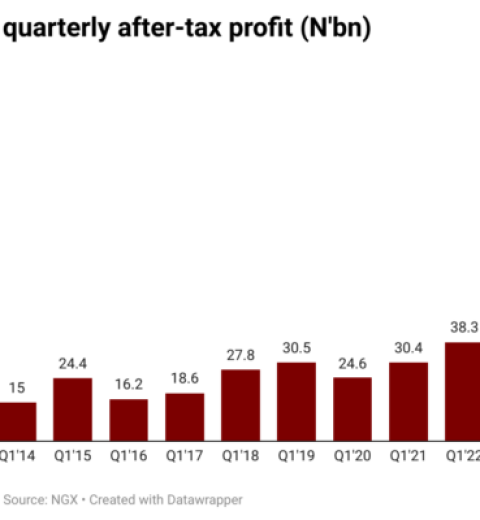
Although Nigeria is not officially in a state of recession, the country is currently grappling with formidable economic hurdles. The depreciation of the naira, alongside soaring inflation rates, has rendered it arduous for numerous Nigerians to meet their financial obligations. Escalating food prices, attributed to insecurity in key agricultural regions, have hindered farmers from tending to their crops. Consequently, many individuals are grappling with the challenge of affording essential goods and managing the prevailing adversity.
In light of these circumstances, we will explore several strategies to effectively navigate and surmount economic hardship:
Emergency funds
In today’s volatile world, the significance of emergency funds cannot be overstated. Financial crises can strike anyone at any moment, and without a safety net in place, these unexpected expenses can quickly lead to financial turmoil. Therefore, it is essential to prioritize establishing an emergency fund as a fundamental aspect of your financial plan.
The initial step in creating your emergency fund is to craft a budget. Rather than viewing budgeting as a limitation, consider it a tool for comprehending your spending patterns and making well-informed financial decisions. Think of it as a safety precaution, not a restriction.
Start by assessing your monthly income and expenditures to determine a feasible amount you can save each month. Identify areas where you can cut back on unnecessary expenses to allocate more resources to your emergency fund. By living within your means and adhering to a budget, you can steadily build your emergency fund over time.
Once you’ve established a budget, take proactive measures to establish and maintain your emergency fund. Set a specific savings target that aligns with your financial situation and long-term objectives. Strive to save an amount equivalent to three to six months’ worth of living expenses to prepare for unexpected emergencies. Consider opening a dedicated savings account solely for your emergency fund to minimize temptation and ensure that the funds remain untouched until necessary. Automating your savings through regular transfers to your emergency fund can facilitate steady growth over time, providing a financial safety net.
Regularly review and adjust your budget as your life circumstances evolve. Dedicate time each month to track expenses, identify areas of overspending, and reallocate funds to your emergency fund as needed.
Lastly, prioritize consistent funding for your emergency fund, treating it as an essential expense similar to rent or utilities. Taking a proactive approach to your finances will ensure that you have a dependable safety net when unforeseen circumstances arise.
Budgeting
Budgeting is essential for achieving financial freedom as it provides a structured approach to managing income and expenses. Personal budgets serve as effective tools for tracking resources and working towards larger financial objectives. Additionally, budgeting presents opportunities to save money, reduce debt, and maintain a comfortable lifestyle. The ability to generate income is vital for sustaining livelihoods, and having a reliable source of income forms the foundation of budgeting.
However, it’s crucial to ask key questions about your income and how you plan to budget with it. These questions may include: What is my current income? How do I allocate my income? Can I save with my existing income? What portion of my income do I allocate to savings versus spending? Do I have the potential to increase my income?
Once you’ve established your budget, remember that it should be adaptable to reflect any changes in your circumstances. For instance, funds initially allocated for a car purchase could be redirected towards potentially lucrative ventures, such as investing in shares of multinational companies.
Furthermore, unexpected events like health emergencies or career advancements may require dipping into savings. Therefore, budgeting should be flexible enough to accommodate unforeseen needs, especially those that may lead to long-term benefits.
After setting up your budget, it’s time to implement strategies to trim expenses, a crucial step in optimizing your finances and allocating more resources to savings or debt repayment. Here are some effective tactics for reducing expenses:
Prioritise necessities
Differentiate between fundamental necessities and optional desires. Prioritize meeting your essential needs before indulging in non-essential purchases. Adopting this change in perspective can result in more intentional spending decisions.
Negotiate bills and subscriptions
Assess your monthly bills and subscriptions to identify potential opportunities for negotiation. Reach out to service providers or explore alternative options that could potentially reduce your expenses.
Decrease energy usage
Embrace energy-saving practices such as switching off lights when they are not in use, utilizing energy-efficient appliances, and adjusting your thermostat as needed. These straightforward adjustments can significantly reduce utility costs over time.
Prepare meals at home
Eating out can be expensive. By preparing meals at home, you not only save money but also have control over ingredients and portion sizes. Consider meal planning and batch cooking to save both time and money.
Resist impulse buys
Before making a purchase, evaluate whether it satisfies a genuine need or is simply a desire. Consider implementing a waiting period for non-essential purchases, giving yourself time to reflect on how they align with your financial goals.
Savings
Savings are often regarded as a financial safety net, providing the means to address urgent needs and opening doors for investment opportunities. The value of savings becomes more significant when they grow at a rate exceeding inflation. Inflation has the effect of diminishing the purchasing power of savings. For instance, saving N300,000 for the purchase of a tricycle today may prove insufficient in two months’ time if the inflation rate is 10 percent, causing the tricycle’s price to increase to N330,000.
Therefore, it is advisable to enhance the value of savings by investing in interest-bearing assets such as stocks, shares, bonds, microfinance, and production ventures.
However, it is important to acknowledge that saving is not always easy. Many individuals live paycheck to paycheck, viewing savings as an afterthought rather than an integral part of their financial planning.
The challenges posed by harsh economic conditions can indeed make saving difficult, at times appearing nearly insurmountable. However, despite these obstacles, saving is not out of reach. Even small amounts can be set aside through daily, weekly, or monthly contributions to collections, cooperative schemes, or microfinance affiliations. For example, a point-of-sale (POS) business in Nigeria could enable a daily contribution of N500 over 25 working days, resulting in an average monthly saving of N12,500.
The Point-of-Sale business emerged in Nigeria in 2013 following the introduction of the agent banking system by the Central Bank of Nigeria. A POS agent operates and facilitates transactions through a POS service provider, which may include banks, microfinance banks, and fintech companies.
Generating additional income
During an economic recession, many individuals face challenges in meeting their financial needs, particularly those who have lost their jobs or experienced wage reductions. However, there are alternative sources of income that can be explored to help navigate through these tough times.
Firstly, freelancing offers an opportunity to earn supplemental income, especially if you possess a sought-after skill or talent. For instance, if you excel in writing, you can provide content creation services to businesses or individuals in need of website content. Similarly, graphic designers can offer their expertise to businesses requiring logos or other design work.
Secondly, the growth of e-commerce has made it simpler to sell goods online. Platforms like Etsy or eBay enable individuals to sell a variety of items, ranging from handmade crafts to vintage clothing.
Thirdly, renting out property can serve as an additional source of income. If you have a spare room or unused property, platforms like Airbnb offer opportunities to rent out accommodations to travelers, generating extra income.
Lastly, teaching or tutoring presents another avenue for earning extra income. If you possess expertise in a specific subject area, you can offer tutoring services either online or in-person to students of various ages.
Investment
Choices regarding investment are highly personal and deeply influenced by individual circumstances, especially in times of economic growth or decline. For instance, a younger individual with good health, a stable income, and promising career prospects may be inclined to invest during an economic downturn, unlike an older person or someone in poor health relying on limited savings for daily expenses.
The key differentiator here is the disparity in time horizons: the younger individual has the capacity to endure market fluctuations and recover losses gradually, whereas the older individual may not. However, these general observations may not universally apply; the younger investor might have familial obligations, prioritizing savings for their children’s education, while the older investor may possess substantial assets and seek to build wealth for future generations, thereby adjusting their time horizon.
Furthermore, some investors naturally exhibit a higher tolerance for risk and may feel more comfortable investing during periods of volatility, irrespective of their circumstances. Regardless of the timing of investment decisions, whether during a crisis or not, there are strategies available to mitigate risk, including diversification, value investing, and dollar-cost averaging.
Diversification
Diversify investments by allocating funds across different stocks, bonds, and funds to manage risk effectively. While it’s not essential to invest in every available option, diversification helps mitigate the impact of underperforming investments.
Strategic investing
In times of economic crisis, it’s advisable to steer clear of high-risk sectors such as startups and luxury goods, opting instead for stable companies with low debt, solid cash flow, and established markets.
Rather than investing a lump sum all at once, consider investing fixed amounts at regular intervals. This strategy smooths market entry and mitigates the impact of market volatility.
By following these approaches, you can bolster financial resilience during economic downturns.
Emergency funds and budgeting help optimize spending, while cost-cutting measures minimize expenses. Maximizing savings, exploring additional sources of income, and making informed investment decisions all contribute to stability and long-term wealth accumulation. These practices promote financial preparedness and stability during challenging times.



